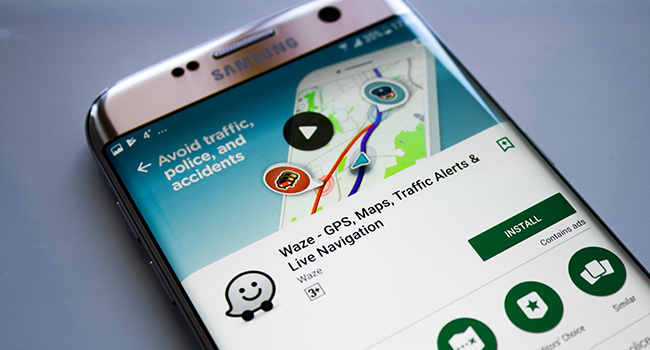
NYPD Demands Waze Stop Letting Users Log Police Checkpoints
"Individuals who post the locations of DWI checkpoints may be engaging in criminal conduct since such actions could be intentional attempts to prevent and/or impair the administration of the DWI laws and other relevant criminal and traffic laws,” wrote NYPD acting Deputy Commissioner Ann Prunty in a Feb. 2 letter to Google.
- By Jessica Davis
- Feb 11, 2019
The New York Police Department has issued a letter to Google asking that the company stop allowing users to post police location data on Waze, Google’s live traffic and navigation application. The NYPD is particularly concerned with users’ ability to log the location of the department’s DUI/DWI checkpoints.
In a letter to Google on Feb. 2, NYPD acting Deputy Commissioner Ann Prunty said that allowing users to log GPS data of officer locations is “encouraging reckless driving,” CNN reports.
"Individuals who post the locations of DWI checkpoints may be engaging in criminal conduct since such actions could be intentional attempts to prevent and/or impair the administration of the DWI laws and other relevant criminal and traffic laws,” the letter reads. “The posting of such information for public consumption is irresponsible since it only serves to aid impaired and intoxicated drivers to evade checkpoints and encourage reckless driving.”
In the letter, the NYPD demands that Google remove any data currently present and continue to take “necessary precaution” to stop the location posting practice on Waze, Google Maps and any other Google-owned or -adjacent platform.
Waze actually advertises the feature on its website, saying, “Get alerted before you approach police.”
In a statement to CNN on Thursday, a Waze spokesperson said, “We believe highlighting police presence promotes road safety because drivers tend to drive more carefully and obey traffic laws when they are aware of nearby police. We've also seen police encourage such reporting as it serves as both a warning to drivers, as well as a way to highlight police work that keeps roadways safe.”
"There is no separate functionality for reporting police speed traps and DUI/DWI checkpoints — the Waze police icon represents general police presence," the spokesperson said.
However, the Waze live map has a comments feature on each reported instance where users can include details of a checkpoint. A user could then explain that a logged police location was specifically a DUI/DWU checkpoint.
"If a user decides to report a DUI/DWI checkpoint, they may choose to do so via the chat function, but please note that this is not a pre-set Waze alert," the Waze spokesperson said.
In the letter, the NYPD said that it will continue to contact Google if the Waze policy does not change.
"The NYPD will pursue all legal remedies to prevent the continued posting of this irresponsible and dangerous information and will enlist the cooperation of our other law enforcement partners and fellow agencies to assist in this effort," the letter states.
About the Author
Jessica Davis is the Associate Content Editor for 1105 Media.